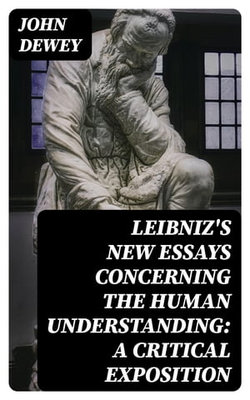John Dewey's 'Leibniz's New Essays Concerning the Human Understanding: A Critical Exposition' offers an incisive analysis of Gottfried Wilhelm Leibniz's seminal work, 'New Essays on Human Understanding'. Dewey, with his characteristic intellectual rigor, dissects Leibniz's arguments, offering both a deep understanding of Leibniz's rationalist philosophy and a critical perspective informed by Dewey's own pragmatic philosophy. The book is a testament to Dewey's scholarly meticulousness, with a prose that is both accessible and enlightening, placed within the larger context of early 20th-century philosophical discourse. It stands as an essential bridge between historical philosophical inquiry and contemporary thought, reflecting Dewey's dedication to the continuous evolution of human thought. John Dewey, an eminent philosopher and educational reformer, was uniquely positioned to navigate the complexities of Leibniz's ideas. His own commitment to pragmatic philosophy, which emphasizes the interplay between thought and action, and a belief in the potential for human progress, shines through his critical exposition. Dewey's engagement with Leibniz can be read as a dialogue between two intellectual giants, one that elucidates the enduring relevance of philosophical introspection in understanding human cognition and the ontology of our world. 'Dewey's Leibniz's New Essays Concerning the Human Understanding: A Critical Exposition' is highly recommended for students of philosophy, historians of ideas, and anyone interested in the progression of human thought. As a meticulously crafted piece of scholarly work, it not only enriches readers' comprehension of Leibniz's philosophy but also serves as an exemplar of the intellectual vigor with which Dewey approached the world. This book will not only illuminate the intricacies of Leibniz's thoughts but also provide invaluable insights into the philosophical underpinnings of modern education and democracy itself.



Share This eBook: